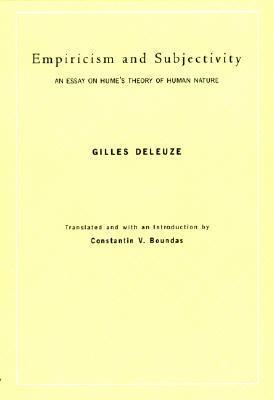What do you think?
Rate this book


163 pages, Paperback
First published January 1, 1953
The classical definition of empiricism proposed by the Kantian tradition is this: empiricism is the theory according to which knowledge not only begins with experience but is derived from it. But why would the empiricist say that? and as the result of which question? (...) The fact is, though, that the definition is in no way satisfactory: first of all, because knowledge is not the most important thing for empiricism, but only the means to some practical activity. Next, because experience for the empiricist, and for Hume in particular, does not have this univocal and constitutive aspect that we give it. (...) In short, it seems impossible to define empiricism as a theory according to which knowledge derives from experience. (106-108)